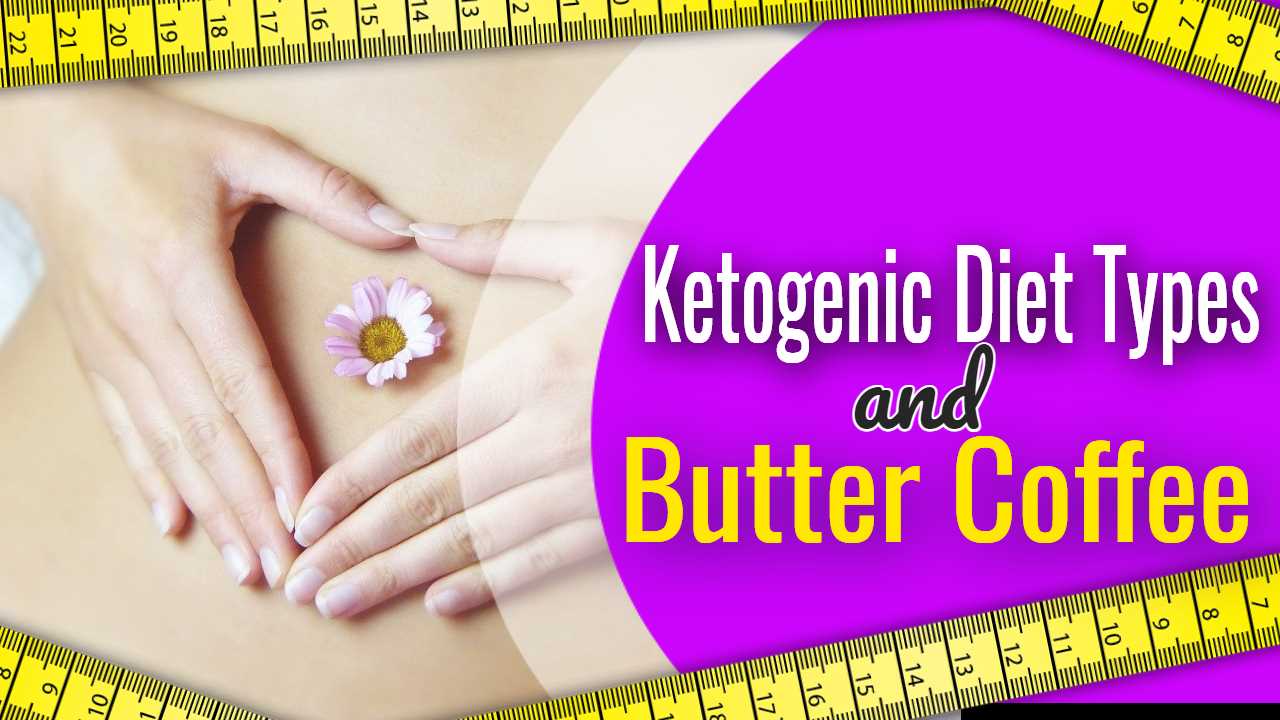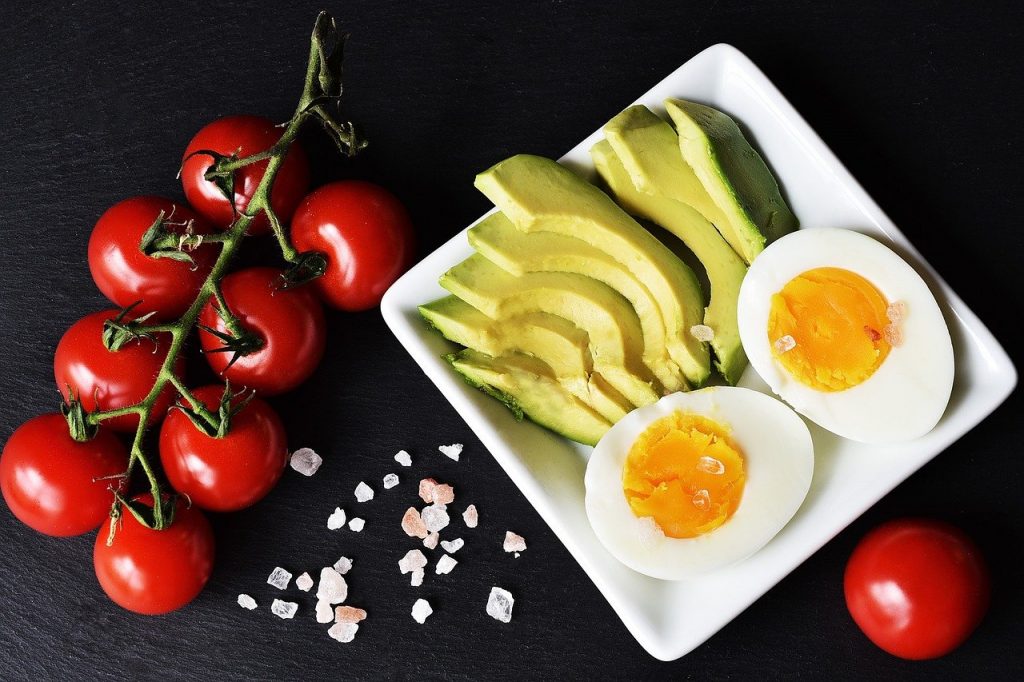Types of Ketogenic Diet
Ketogenic diets are now well established for their weight loss benefits. Obese patients on low carbohydrate diets have been shown in studies to lose more weight than patients on a low-fat diet. Our metabolism can run either on fats or carbs. Once that became accepted and large numbers of people moved over to fats it became apparent that fats is the healthier choice for the body.
The Standard Ketogenic Diet Plan (SKD) is what people usually mean by the Keto Diet. This diet plan consists of a 75% fat intake, 20% protein intake, and 5% carbohydrate intake.
Targeted Ketogenic Diets (TKD) are geared towards bodybuilders. It adds back into their diet a limited use of carbohydrates within a half-hour of a workout. It turns out that after performing high-intensity workouts, it’s healthy to burn additional carbs off. It doesn’t affect their state of ketosis. The carbs are burnt and gone before that can happen.
The Cyclical Ketogenic Diet (CKD) is a long-term adjustment to optimise the Ketogenic Diet process. Again it is a way of ketogenic dieting that incorporates periodic carbohydrate days.
The High Protein Ketogenic Diet (HPKD) is tuned for those with obesity. HPKD dieters later transition into a SKD (standard ketogenic diet).
Finally, the Restricted Ketogenic Diet (RKD) is a calorie-restricted version of the SKD.
What are the benefits of the Ketogenic Diet and Butter Coffee?
The supposed health benefits are mostly weight loss and increased energy levels, aimed particularly at those on a ketogenic diet or low-carb, high-fat diet. It is also claimed to improve cognitive function and boost metabolism.
This is eating the same ketogenic food within the 8-hour window during the day. The ratio of macros remains the same except that an overnight fast of 14-16 hours is necessary. This change in timing is seen as having the most profound effect on hormones and fat loss.

Bulletproof coffee may taste delicious, but the data supporting its benefits (and ketogenic diets, for that matter) simply isn’t there! drink it if you enjoy the flavour, not for its alleged weight-loss or health effects.
If you are you are looking to jump-start your weight loss, some suggest combining the popular ketogenic diet with intermittent fasting. The idea is that this can result in swifter weight reduction and allow your body to become extremely efficient at burning fat.
If you’re one of those on a ketogenic diet, drinking bulletproof coffee. It is thought that it may help you by triggering weight loss through ketosis, a metabolic state that sets off by the lack of carbs and kickstarts fat-burning.
Butter coffee may provide some health benefits, particularly to people whose doctors have put them on a ketogenic diet. However, more research is required to validate this claim. Reduced time to ketosis and reduced symptoms of keto-induction in a ketogenic diet
a ketogenic diet is a low-carbohydrate diet designed to make your body break down stores of fat and protein, a process that is called ketosis.
You may have heard others rave about bulletproof coffee, also referred to as butter coffee or keto coffee, and the potential benefits it provides to your health. It is not your average cup. But, it is a favourite way for many keto dieters to start their day.
Keto-diet ketosis supplements
Butter in coffee may seem weird at first. But people everywhere have been praising the benefits of butter coffee. A drink combining the quick boost of caffeine with the sustained slow release of energy from butter—who could possibly resist this tandem?
Many struggles occur to people with drinking black coffee due to its bitter aftertaste.
A low-carb diet like the ketogenic diet has generated a crazy buzz for a butter coffee with virgin coconut oil. What’s also driving its popularity is its health benefits. The creator of the bulletproof diet and its original coffee recipe has touted the drink as one that’ll bring satiety, support weight management, and boost brain health.
One of the main reasons that butter coffee became so popular in the 2010s was for its purported health benefits. However, while its high-calorie count and low carb levels mean it’s great for ketogenic diets. But is it actually healthy?
While butter coffee is a good antioxidant source, its saturated fats and high-calorie level could derail some diets.
Butter is a source of protein and fat, two of the highlighted macronutrients in the ketogenic diet. Grass-fed butter is made from grass-fed cows. This type of grass gives cows additional nutrients and health benefits passed into their milk and butter and cheese products.
For those starting out the ketogenic diet, it may seem almost impossible to hit the macronutrient fat count, consuming 75% of calories as fat. In order to make-it into ketosis and start reaping the benefits of the ketogenic diet, it’s essential to eat anywhere from 80 to 125 grams of fat (dependent upon height and weight).
In order to obtain the full benefits of the butter coffee drink, you should stick to a low carb or a ketogenic diet. Drinking this coffee while eating a lot of carbs is unlikely to produce the desired effects mentioned. Drink this coffee only with a very low carb breakfast (usually no more than 5g).
Keto Diet for Fat Loss
The theory behind the Keto Diet for Fat Loss which is in effect that a high-fat diet that helps you burn fat seems weird at first. But, no, it isn’t too good to be true. The ketogenic (Keto) diet has surged in popularity over the past few years, and for good reason. Whether you want to jumpstart your weight-loss journey or simply improve your mental focus, the keto-diet approach can get you there.
Also recommended by some is a drink known as “bulletproof” coffee. It is a coffee that has fats added to it. Although it may initially sound unappealing, Keto Coffee can be surprisingly tasty if it made properly. Even dieters who are engaged in intermittent fasting for weight loss take Keto coffee, so that they have energy even with less food intake.
Bulletproof coffee is a buttery coffee drink that’s popular with both keto and paleo dieters. Yes, you heard that right, “bulletproof coffee”, as it’s called, contains one to two tablespoons of unsalted, grass-fed butter. Dave Asprey, the creator of bulletproof coffee, included it in the recipe as a source of healthy fats, which can help you feel full and energized throughout the day.
Why drink coffee with butter?
Keto coffee combines coffee and fats to support weight loss for those following low carb diets. But, it is certainly not a magic weight loss bullet. However, there are a few ways that keto coffee may be part of a healthy diet and potentially support weight loss.
Eating fat has been shown to lead to greater amounts of energy, more efficient energy usage, and more effective weight loss.
The high-fat content of butter coffee is provided by butter and coconut oil. This can help people feel fuller. Various studies show that mcts might help people feel less hungry. This is certainly a plus in terms of appetite control.
Recently you may have noticed the trend about bulletproof coffee. So, what is this all about bulletproof coffee?
First, it is a coffee that improves mental clarity, helps in weight loss while at the same time, boosting your energy levels.
As strange as it may sound, one popular way of incorporating grass-fed butter into a diet is to drink it. People following a keto meal plan, for example, often add grass-fed butter to their coffee along with coconut oil or medium-chain triglyceride (MCT) oil and use it as a breakfast replacement or for energy and focus in between meals.
Adding sugar and creamer packs on the calories. While it may taste good, butter can taste just as good, and you get all that beneficial fat. Sugar is terrible for your body and can slow weight loss, and it’s usually a no-no on the keto diet. The science isn’t settled on if the keto diet can lead to long-term weight loss and there are definitely challenges in maintaining a strict keto diet.
Standard Ketogenic Diet (SKD)
The biggest issue with the standard ketogenic diet (SKD) is a lack of micronutrients. The standard ketogenic diet allows for only 5 – 10% of your calories to come from carbs. Most fruits and vegetables are primarily carbs. This means that many people doing the ketogenic diet are not getting enough micronutrients.
High Protein Ketogenic Diet
Wikipedia defines the keto diet as:
the ketogenic diet is a high-fat, adequate-protein, low-carbohydrate diet that in medicine is used primarily to treat difficult-to-control epilepsy in children. The diet forces the body to burn fats rather than carbohydrates. If you are interested in pursuing a keto diet, it is advisable to talk to your doctor or nutritionist to get more information.
Although the ketogenic diet requires the consumption of lots of fat, only the right kind of fats. Saturated fats, like grass-fed butter or ghee, raise levels of HDL’s (high-density lipoproteins). Taken in moderation as a regular part of your diet, they help you manage cholesterol by taking it out of your blood and preventing it from building up in your arteries.
Our bodies are more insulin resistant in the morning, partly due to a rise in cortisol upon waking. That means our bodies aren’t very efficient at metabolizing carbohydrates at breakfast. It also means the body naturally favours using fat for fuel in the morning (also called ketosis).
What is a Keto Diet?
To put it simply, this recipe is brewed coffee blended with grass-fed butter and MCT oil. It’s touted as a coffee that will give you more energy and help you lose weight. It’s a popular recipe with those on a paleo or keto diet because of the healthy fats.
If you often struggle in the morning with lethargy issues and that regular cup of coffee doesn’t seem to work for you anymore, then you’ve come to the right place. Ketogenic coffee is your answer to combat all those morning woes.
The content on this website should not be taken as medical advice and you should always consult with your doctor before starting any diet or exercise program. We provide nutritional data for our recipes as a courtesy to our readers.
But what if you’re on the keto diet and can’t seem to get enough fat into your day? Is it ok, then, to drink bulletproof keto coffee? Clinical studies suggest “not really”. Eating too-much saturated-fat can contribute to high LDL-cholesterol.
Bulletproof coffee is the best coffee for the keto diet because of all the healthy fats added to it. Obviously, keto is a high-fat low carb diet and bullet coffee conforms perfectly to the diet. The coffee is high in fat, good fats, and it has zero sugar/carbs.
MCT stands for medium-chain triglyceride. This oil is popularly consumed on a ketogenic diet. The MCT oil present in butter coffee can help promote fullness, especially if you are on a calorie-restricted diet. MCT oil can help you not feel hungry too often, and help with weight loss.Like green juice or a wheatgrass shot, bulletproof coffee is both a beverage and a lifestyle statement.
Every year, a new diet trend or superfood comes along that swears to be the be-all, end-all for healthy living. This year, it’s this keto bulletproof coffee recipe.
Because it’s so high-calorie, bulletproof coffee is meant to be a breakfast substitute, not something you eat alongside a traditional breakfast. Part of the reason it’s so popular among keto dieters is that all of its calories come from fat, with no carbohydrates or protein.
If you are new to the keto diet, you’ve probably become quite accustomed to searching for low carb foods and low carb drinks that still taste good. For many, the keto diet seems to end just as abruptly as it started, with massive amounts of sweet and savoury carbs.
The same author that wrote this article also recently went into print about How To Find Your Ketogenic Diet Carb Limit on how to assess the point at which the diet will become truly effective.




